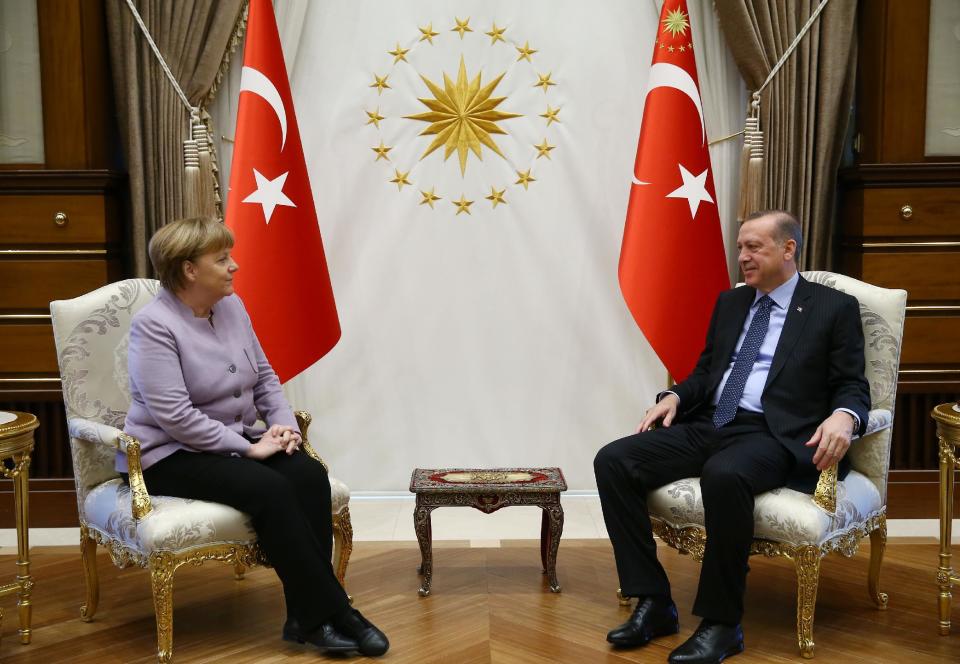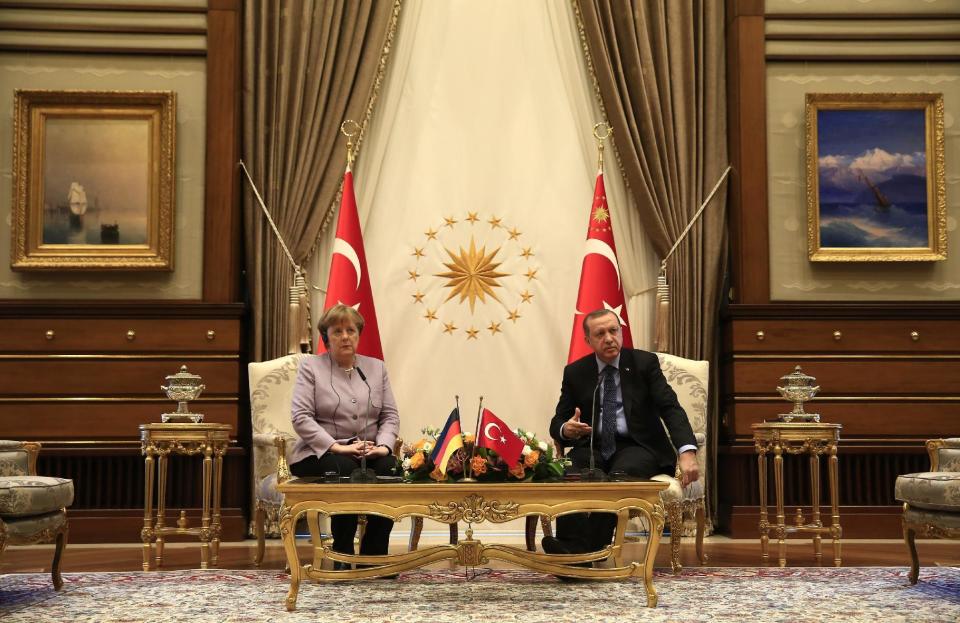Merkel and Erdogan hold tense meeting in Turkish capital
ANKARA, Turkey (AP) — German Chancellor Angela Merkel on Thursday urged Turkey to uphold democracy as the country heads toward a critical referendum on boosting the powers of the presidency, comments that ended up being part of a tense exchange with Turkish President Recep Tayyip Erdogan.
Merkel was in Ankara for talks with Erdogan and other Turkish officials aimed at soothing relations that have been strained by, among other things, Turkish accusations that Germany does not support Turkey in its fight against terror groups.
Erdogan ended up taking offense at the German leader's use of the phrase "Islamist terror," saying the two words should not be placed side-by-side.
Merkel's visit was her first to Turkey since a failed coup there in July and comes as the country prepares to hold a referendum on whether to switch to an executive presidential system. Critics who oppose the proposed change say it would concentrate too many powers in Erdogan's hands and further erode the separation of powers in the country.
"I pointed out that in such a phase of deep political change, everything must be done to preserve the separation of powers, and above all freedom of opinion and the plurality of society," Merkel told reporters during a joint press appearance with Erdogan.
"Opposition belongs to a democracy. We see that with one another every day in democratic states," she said.
She also called for elections observers to be allowed to monitor the vote.
Erdogan rejected the notion that the presidential system he has long sought threatened the separation of powers.
"First of all, there's not an ounce of truth to this," he said. "There's a legislative organ; an executive one as well; and a judicial."
Erdogan also reproached the German leader for using the phrase "Islamist terror" during their joint appearance. The expression saddens Muslims because Islam and terror cannot coexist, he said.
"Personally, as a Muslim, as a Muslim president, I can never accept this," Erdogan said.
Merkel responded by saying Germany makes a linguistic distinction between "Islam" and "Islamist."
"I would like people in Turkey to know, in any case, that we do not just respect and value Muslims, but we want to work well together and fight this terrible terrorism together," she added.
Merkel later toured parts of Turkey's parliament building, which was damaged during the failed coup. She met with Prime Minister Binali Yildirim, who called for greater cooperation from Germany against the movement led by U.S.-based Muslim cleric accused by Turkey of orchestrating the coup.
Turkey also wants Germany to extradite some 40 soldiers allegedly involved in the coup attempt and to reject asylum requests from people linked to the movement Turkey blames for the coup.
Merkel urged Turkey to relay concerns about possible criminal activities of Gulen supporters in Germany through security channels and to refrain from using an organization running Turkish mosques to spy on people in Germany.
"Irritations, or the feeling that people are being spied upon, needs to be prevented from the start," Merkel said.
__
Associated Press writers Geir Moulson and Frank Jordans in Berlin contributed.

 Yahoo News
Yahoo News 




